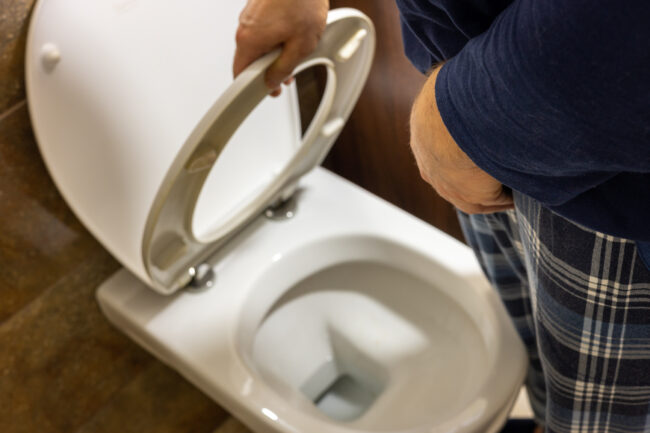If you’ve ever been curious about how your body manages potassium levels, particularly how long it takes to excrete this essential mineral, then this is the article for you. Armed with medical expertise, we aim to provide you with a deep dive into the physiology of potassium management. So, let’s get started!
Table Of Contents
−- What Exactly is a Potassium Test?
- The Role of Potassium in the Body
- What Parameters Does a Potassium Test Measure?
- Why Might You Have High Potassium Levels in Urine?
- How is a Urine Potassium Test Conducted?
- What Defines Normal and Abnormal Potassium Levels in Urine?
- Symptoms of High Potassium Levels in Urine
- Factors That Can Influence Urine Potassium Test Results
- What Are the Risks Involved in a Urine Potassium Test?
What Exactly is a Potassium Test?
A potassium test isn’t just a routine procedure; it’s a critical diagnostic tool that measures the levels of potassium in your blood or urine. Potassium serves as a vital electrolyte in your body, responsible for maintaining a delicate balance of water and other electrolytes. The test is instrumental in diagnosing conditions such as hyperkalemia, where potassium levels are abnormally high. While a blood test can measure potassium levels, a 24-hour urine collection is usually more indicative of your body’s potassium levels over an extended period.

The Role of Potassium in the Body
Understanding potassium begins with acknowledging its indispensability. This mineral is essential for a slew of physiological processes. It aids in nerve and muscle cell functioning, manages fluid balance, and even keeps your body’s pH levels in check. Your diet primarily sources potassium, with the kidneys serving as the custodian, regulating potassium levels in the blood by filtering any excess into the urine. When your kidneys fall short in this task, that’s when potassium can dangerously accumulate in your bloodstream.
What Parameters Does a Potassium Test Measure?
When undergoing a potassium test, the metrics that come into play aren’t merely arbitrary numbers. Normal urine potassium levels typically range between 20 mEq/L in a random urine sample to 25-125 mEq per day in a 24-hour collection. These tests can identify deviations, like high potassium (hyperkalemia) or low potassium (hypokalemia). Often, healthcare providers will also measure urinary creatinine concentration alongside urinary potassium to get an accurate picture of potassium excretion. Keep in mind, that your serum potassium and plasma potassium levels might vary slightly, so a comprehensive approach gives the best insights into your potassium balance.
Why Might You Have High Potassium Levels in Urine?
An elevated level of potassium in your urine isn’t just a number; it’s a warning sign that warrants attention. Numerous factors can contribute to this, from damaged kidneys and imbalanced hormones to severe vomiting and specific medications like diuretics. It’s also possible for a potassium deficit in your body to manifest as high levels in a urine test. A 24-hour urine potassium test becomes especially valuable for diagnosing abnormal levels.
How is a Urine Potassium Test Conducted?
The procedure for a urine potassium test isn’t cumbersome. You can either opt for a single urine sample collected at your healthcare provider’s office or go for a more comprehensive 24-hour urine collection. In the latter case, you’ll collect all your urine over a day in a designated container. Your collection concludes the next morning and is refrigerated until sent for analysis. This gives a better understanding of your body’s potassium regulation over a complete day-night cycle.
What Defines Normal and Abnormal Potassium Levels in Urine?
If you’re looking to understand what your urine potassium test means, the normal levels usually range between 15 to 20 mmol/L or 15 to 20 mmol/d. Any deviation could point towards extrarenal causes such as excessive fluid intake, diabetes, or kidney issues. For instance, if your urine volume exceeds 2 liters in a 24-hour test, that might indicate elevated potassium levels. Monitoring these levels is critical for maintaining long-term health.
Symptoms of High Potassium Levels in Urine
If you’re experiencing symptoms like fatigue, muscle weakness, nausea, or vomiting, it might be time to check your potassium levels. These aren’t just discomforts; they could be telltale signs of high potassium levels. In extreme cases, a potassium imbalance can even cause irregular heartbeats and other serious health issues. Sometimes, excess potassium is eliminated through the urine, making it crucial to test both your urine and blood to ensure they’re within a healthy range.
Factors That Can Influence Urine Potassium Test Results
Be aware that certain medications—antibiotics, diabetes medicines, insulin, and blood pressure medications—can skew your urine potassium test results. Similarly, other conditions like vomiting, prolonged diarrhea, or dehydration can also throw your potassium levels off balance. Always consult with your healthcare provider and share all relevant medical history to ensure an accurate interpretation of your test results.
What Are the Risks Involved in a Urine Potassium Test?
Undertaking a urine potassium test isn’t entirely risk-free. For one, collecting urine over 24 hours can be cumbersome and uncomfortable. Improper collection methods may contaminate the sample. Additionally, your ongoing medications or recent dietary changes can affect the test outcome. If the results show abnormal levels, further diagnostic tests may be necessary. Always consult your healthcare provider to discuss any possible risks and ensure you’re well-informed before taking the test.
In conclusion, understanding how your body regulates potassium is more than just scientific curiosity; it’s essential for your long-term health. A urine potassium test offers valuable insights into this regulation process. With this comprehensive guide, you now possess the knowledge to better understand your body’s potassium levels and what they signify.

Editorial Staff
Our writers, editors, content managers, and SEO specialist. We all take part in crafting amazing articles. We spend hours ensuring that each article is based on facts, researched, and thorough. You'll never want to click the back button to look for more answers other than here!
